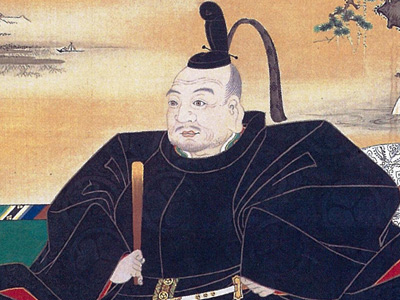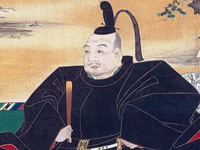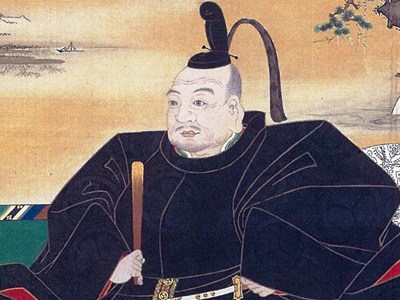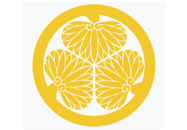Tokugawa Ieyasu (1543-1616)

Ieyasu's Character
Ieyasu had a number of qualities that enabled him to rise to power. He was both careful and bold—at the right times, and in the right places. Calculating and subtle, Ieyasu switched alliances when he thought he would benefit from the change. He allied with the Late Hōjō clan; then he joined Hideyoshi's army of conquest, which destroyed the Hōjō; and he himself took over their lands. In this he was like other daimyōs of his time. This was an era of violence, sudden death, and betrayal. He was not very well liked nor personally popular, but he was feared and he was respected for his leadership and his cunning. For example, he wisely kept his soldiers out of Hideyoshi's campaign in Korea.

He was capable of great loyalty: once he allied with Oda Nobunaga, he never went against him, and both leaders profited from their long alliance. He was known for being loyal towards his personal friends and vassals, whom he rewarded, He was said to have a close friendship with his vassal Hattori Hanzō. However, he also remembered those who had wronged him in the past. It is said that Ieyasu executed a man who came into his power because he had insulted him when Ieyasu was young.
Ieyasu protected many former Takeda retainers from the wrath of Oda Nobunaga, who was known to harbor a bitter grudge towards the Takeda. He managed successfully to transform many of the retainers of the Takeda, Hōjō, and Imagawa clans—all whom he had defeated himself or helped to defeat—into loyal followers. At the same time, he could be ruthless when crossed. For example, he ordered the executions of his first wife and his eldest son—a son-in-law of Oda Nobunaga; Oda was also an uncle of Hidetada's wife Oeyo.
He was cruel, relentless and merciless in the elimination of Toyotomi survivors after Osaka. For days, dozens and dozens of men and women were hunted down and executed, including an eight-year-old son of Hideyori by a concubine, who was beheaded.
Unlike Hideyoshi, he did not harbor any desires to conquer outside Japan—he only wanted to bring order and an end to open warfare, and to rule Japan Japan is an island country in East Asia. Beginning in the 12th century, political power was held by a series of military dictators (shōgun) and feudal lords (daimyō) and enforced by a class of warrior nobility (samurai). In the Meiji period, the empire adopted a Western-modeled constitution and pursued a program of industrialization and modernization. A global leader in the automotive, robotics and electronics industries, Japan has made significant contributions to science and technology..
Japan is an island country in East Asia. Beginning in the 12th century, political power was held by a series of military dictators (shōgun) and feudal lords (daimyō) and enforced by a class of warrior nobility (samurai). In the Meiji period, the empire adopted a Western-modeled constitution and pursued a program of industrialization and modernization. A global leader in the automotive, robotics and electronics industries, Japan has made significant contributions to science and technology..
While at first tolerant of Christianity, his attitude changed after 1613 and the executions of Christians sharply increased.
Ieyasu's favorite pastime was falconry. He regarded it as excellent training for a warrior. "When you go into the country hawking, you learn to understand the military spirit and also the hard life of the lower classes. You exercise your muscles and train your limbs. You have any amount of walking and running and become quite indifferent to heat and cold, and so you are little likely to suffer from any illness.". Ieyasu swam often; even late in his life he is reported to have swum in the moat of Edo Castle.
Later in life he took to scholarship and religion, patronizing scholars like Hayashi Razan.
Two of his famous quotes:
"Life is like unto a long journey with a heavy burden. Let thy step be slow and steady, that thou stumble not. Persuade thyself that imperfection and inconvenience are the lot of natural mortals, and there will be no room for discontent, neither for despair. When ambitious desires arise in thy heart, recall the days of extremity thou hast passed through. Forbearance is the root of all quietness and assurance forever. Look upon the wrath of thy enemy. If thou only knowest what it is to conquer, and knowest not what it is to be defeated; woe unto thee, it will fare ill with thee. Find fault with thyself rather than with others."
"The strong manly ones in life are those who understand the meaning of the word patience. Patience means restraining one's inclinations. There are seven emotions: joy, anger, anxiety, adoration, grief, fear, and hate, and if a man does not give way to these he can be called patient. I am not as strong as I might be, but I have long known and practiced patience. And if my descendants wish to be as I am, they must study patience."
He said that he fought, as a warrior or a general, in 90 battles. He was interested in various kenjutsu skills, was a patron of the Yagyū Shinkage-ryū school, and also had them as his personal sword instructors.
HISTORY

RESOURCES
This article uses material from the Wikipedia article "Tokugawa Ieyasu (1543-1616)", which is released under the Creative Commons Attribution-Share-Alike License 3.0.
© Stories Preschool. All Rights Reserved.










